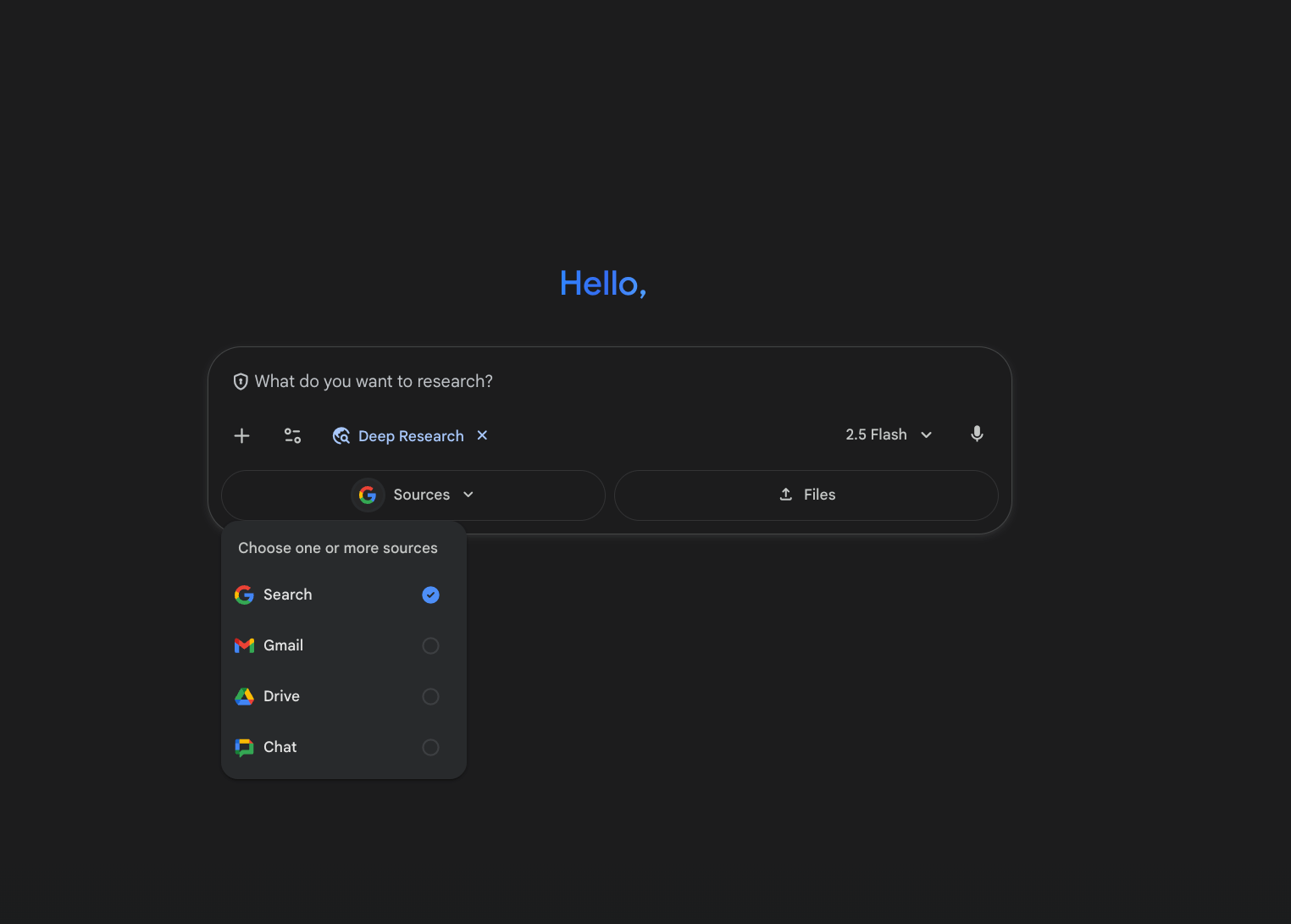“`html
Google Gemini Enhances Deep Research with Workspace Integration
Google has recently announced a significant upgrade to its Gemini AI platform, introducing enhanced capabilities for its Deep Research feature. This update allows Gemini to leverage information from users’ emails, documents, and chat logs, making it a powerful tool for generating detailed research reports. The Deep Research function is designed to assist users in creating comprehensive reports rather than simply answering queries. This feature is particularly beneficial for professionals who require in-depth analysis and documentation for various projects. By utilizing Gemini’s AI capabilities, users can streamline their research processes and obtain tailored insights.
Key Features of Gemini’s Deep Research
The Deep Research feature operates through a structured multi-step approach. Initially, it formulates a research plan that outlines the necessary steps to gather relevant information. Following this, Gemini conducts a series of web searches, drawing from a variety of sources to compile a detailed report. Users can engage with the report by requesting additional information or modifications, ensuring that the final output meets their specific requirements.
Furthermore, the completed report can be exported into Google Docs or transformed into an AI-generated podcast, providing flexibility in how the information is utilized. This versatility allows users to present their findings in various formats, catering to different audiences and preferences.
Integration with Google Workspace
One of the standout features of the updated Deep Research is its integration with Google Workspace. This connectivity allows Gemini to analyze documents and communications related to a particular project. For instance, a user can initiate a market analysis for a new product by having Gemini review brainstorming documents, relevant email threads, and project plans stored in Google Drive. Similarly, users can generate competitor analysis reports by cross-referencing public web data with internal strategies, comparison spreadsheets, and team discussions.
This integration significantly enhances the contextual understanding that Gemini can provide, making it a more effective research tool. By tapping into the wealth of information already available within Google Workspace, Gemini can deliver insights that are not only accurate but also highly relevant to the user’s specific needs.
How to Use the Deep Research Feature
To utilize the Deep Research function, users can select it from the prompt bar within the Gemini interface. They will then have the option to choose from four different sources of information:
- Regular Google Search
- Gmail
- Google Drive (including Docs, Slides, Sheets, and PDFs)
- Google Chat
This selection process allows users to customize the data sources that Gemini will use to inform its research, ensuring that the output is relevant and comprehensive. By allowing users to choose the information sources, Gemini not only enhances the quality of the research but also empowers users to focus on the most pertinent data for their specific projects.
Current Availability and Future Rollout
At present, the Deep Research feature is only available on desktop platforms. However, Google has indicated that it plans to roll out this functionality to mobile devices in the coming days. This expansion will allow users to access Gemini’s advanced research capabilities on the go, further enhancing productivity and collaboration. The mobile rollout is particularly significant as it aligns with the increasing trend of remote work and the need for flexible tools that can be accessed from anywhere.
Market Context and Implications
The introduction of Gemini’s Deep Research feature comes at a time when there is a growing demand for AI-driven tools in the workplace. As businesses increasingly rely on data-driven insights, the ability to quickly generate comprehensive reports is invaluable. Gemini’s integration with Google Workspace positions it as a competitive option in the market of AI research assistants.
Moreover, the emphasis on utilizing existing documents and communication threads aligns with trends towards more integrated and context-aware AI solutions. By enabling users to pull from their own data, Google is not only enhancing the utility of Gemini but also promoting a more personalized user experience. This integration could potentially lead to a paradigm shift in how professionals approach research, allowing them to focus more on analysis and interpretation rather than data gathering.
In addition, the competitive landscape for AI research tools is rapidly evolving. Companies like Microsoft and OpenAI have also ventured into this space, offering their own AI solutions that emphasize productivity and collaboration. As a result, Google’s timely enhancement of Gemini is a strategic move to maintain its market position and cater to the growing needs of professionals across various industries.
Conclusion
The enhancements to Google Gemini’s Deep Research feature represent a significant advancement in the capabilities of AI-driven research tools. By integrating with Google Workspace and allowing access to a wide range of data sources, Gemini is poised to become an essential resource for professionals seeking to conduct thorough and informed analyses. As the rollout continues, users can expect to see improvements in how they interact with AI for research purposes, ultimately leading to more efficient workflows and better-informed decision-making.
As organizations increasingly look for ways to harness the power of AI to improve productivity, tools like Gemini could play a pivotal role in transforming research methodologies and enhancing overall business intelligence. The future of research is undoubtedly intertwined with AI, and Google’s Gemini is at the forefront of this transformation.
“`




